- Author Jason Gerald gerald@how-what-advice.com.
- Public 2023-12-16 10:50.
- Last modified 2025-01-23 12:04.
In addition to maintaining the appearance and freshness of your body's scent during daily activities, maintaining hygiene by cleaning and caring for your body regularly will prevent you from contracting or spreading disease. By adopting a clean lifestyle, you stay healthy and don't transmit disease to those around you. This article explains how to live hygienically so that you are always healthy and look good.
Step
Part 1 of 2: Taking Care of Yourself Every Day
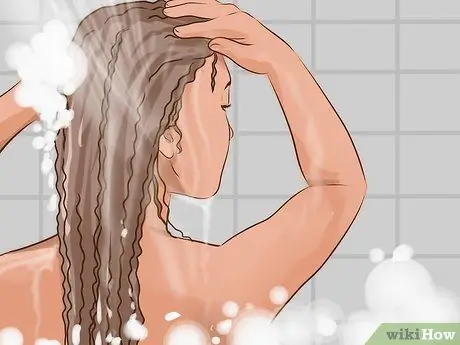
Step 1. Get in the habit of bathing every day
Bathing is an effective way to rid the body of dust, sweat, and/or bacteria after a long day of activities and prevent diseases caused by lack of body hygiene. In addition, bathing every day makes you feel comfortable, odor free, and look great all day long.
- Use a washcloth, sponge, or small towel when scrubbing your skin to remove dead skin and dirt. Change your skin cleanser regularly to keep it bacteria free.
- If you don't need to wash your hair every day, put on a shower cap and wash yourself with soap and water.
- If you don't have time to shower, clean your face, armpits, and genitals with a damp towel before going to bed at night.
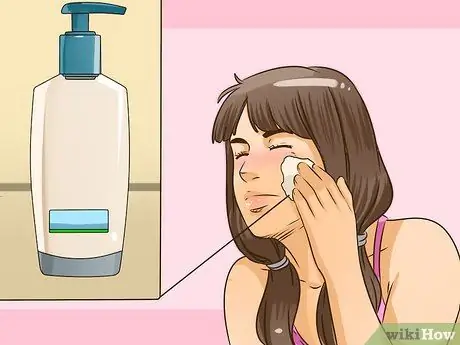
Step 2. Clean your face every day
Facial skin is more sensitive than skin on other parts of the body. You can use a facial cleanser in the shower or while washing your face in the sink. Do not use hot water when washing your face because it can irritate the skin and make the skin drier.
- Buy facial cleansing products according to skin type. If your skin is very dry, don't use high-alcohol products as they can dry out your skin even more. If your skin is very sensitive, use a hypo-allergenic product because it uses ingredients that are safe for the skin.
- If you often use cosmetics to apply makeup, buy a facial soap that works to lift cosmetics. Alternatively, use a makeup remover product before washing your face with a face wash every night.
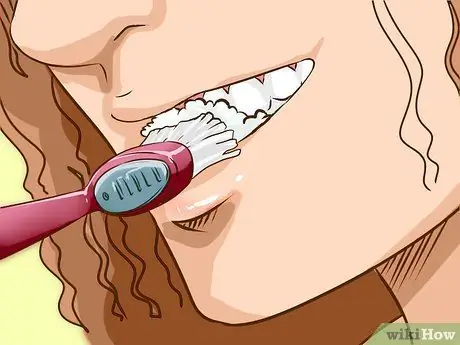
Step 3. Get in the habit of brushing your teeth every morning and night
Brushing your teeth and flossing regularly can prevent gum disease that triggers other diseases throughout the body, such as heart disease, stroke, and diabetes. Get in the habit of brushing your teeth regularly, especially after eating sugary or acidic foods that erode tooth enamel.
- To strengthen your gums, take a small toothbrush and toothpaste with you when traveling so you can brush your teeth after every meal.
- Floss between your teeth after dinner to prevent gingivitis (inflammation of the gums).
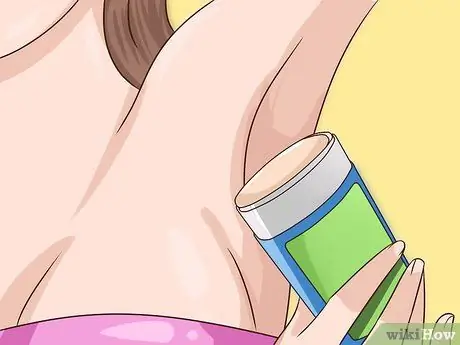
Step 4. Use deodorant
Antiperspirants function to control sweat secretion, while deodorants prevent body odor when the body sweats. Use natural aluminum-free deodorants to prevent health problems from using chemical deodorants.
- Instead of using deodorant every day, use deodorant if you are going to sweat a lot or attend a particular event, such as before exercising, traveling in a hot area, or attending a formal event.
- If you don't use deodorant, get rid of body odor by washing your armpits with soap and water.
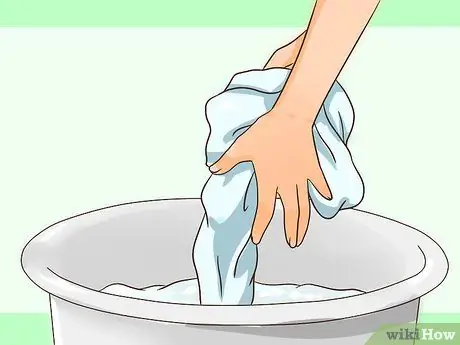
Step 5. Wash the clothes that have been worn
Usually, shirts and underwear must be washed after wearing, while trousers and shorts can be worn several times. Determine the exact time when clothes need to be washed.
- Remove stains from clothes before washing.
- Take the time to iron your clothes to make your appearance more presentable. Cut off any dangling threads and use a lint-free shaver to remove fine fibers from the clothes.
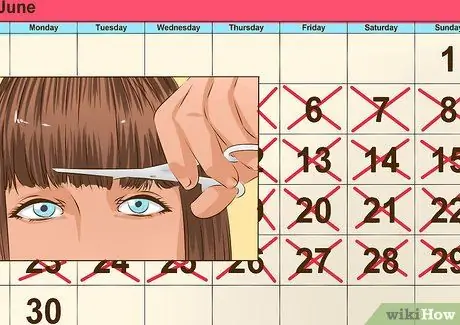
Step 6. Have your stylist cut your hair every 4-8 weeks
Whether you want to grow your hair long or prefer short hair, take the time to cut your hair to maintain healthy hair, remove split ends, and style your hair to make your appearance more attractive.
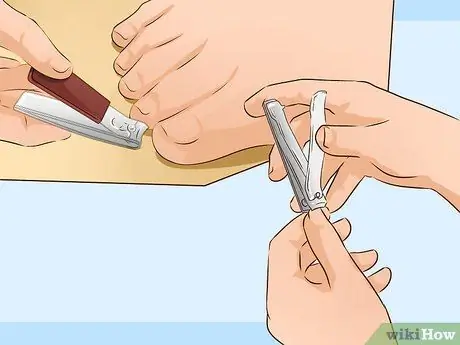
Step 7. Trim your fingernails and toenails regularly
Apart from keeping your hands and feet healthy and attractive, this method prevents toenails from tearing, breaking, or other problems. Keep in mind that dirt can get stuck under short or long nails. You are free to determine the nail clipping schedule. Consider the function of your fingers to determine how many days you need to trim your nails. For example, if you type a lot while working on the computer or playing the piano a lot, it's a good idea to trim your nails short. For those of you who want to lengthen your nails, trim them a little every few days so you don't break your nails.
Clean the underside of the nail with a nail brush to keep bacteria free and prevent infection
Part 2 of 2: Preventing Disease
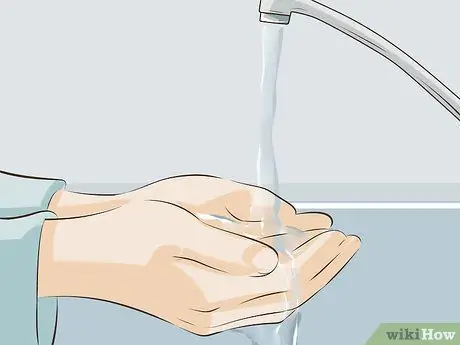
Step 1. Get in the habit of washing your hands with soap and water
This step keeps you from transmitting the disease and prevents others from contracting the disease. Don't forget to wash your hands after using the restroom; before, during, and after preparing food; before and after caring for the sick; after blowing your nose, coughing, sneezing; after taking out the trash; after caring for animals and/or cleaning animal waste.
Bring an antiseptic hand sanitizer with you in case you haven't had time to wash your hands with soap and water
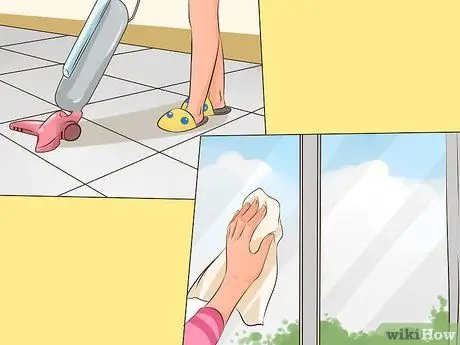
Step 2. Clean the furniture and floors of the house regularly
Get into the habit of cleaning the kitchen, bedroom, bathroom, and other rooms in the house along with the furniture in it at least once a week using soap and water or home cleaning products. If you live with other people, set a weekly cleaning schedule to share chores.
- Instead of using conventional home cleaning products, choose products that use environmentally friendly materials.
- Rub the sole of the shoe on the doormat before entering the house. Get in the habit of taking off your shoes and leaving them outside before entering the house. Ask others to do the same. This step prevents dust and mud from contaminating the house.
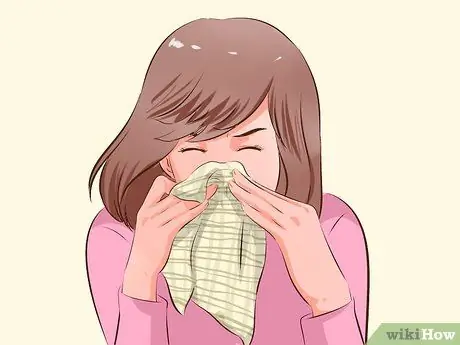
Step 3. Cover your nose and mouth when you cough or sneeze
This step is very useful in preventing the spread of bacteria to others. Make sure you wash your hands with soap and water after coughing or sneezing.
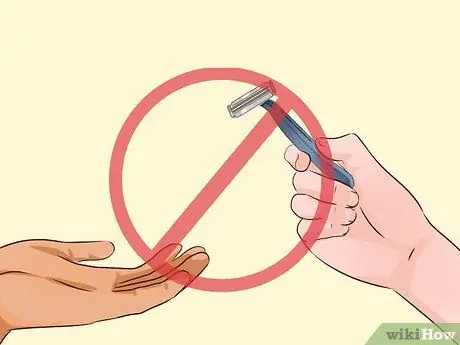
Step 4. Don't use other people's razors, towels, or makeup
The risk of getting a staph infection increases if you borrow or lend personal equipment. If someone else wants to borrow your towel or shirt, wash it before lending it and after returning it.
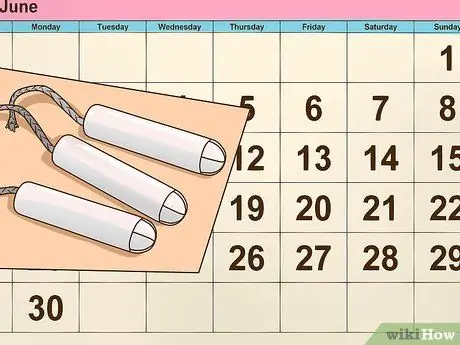
Step 5. Change tampons or sanitary napkins regularly
If you use a tampon, change it every 4-6 hours to prevent toxic shock syndrome (TSS), which is a symptom of bacterial poisoning from tampons. If you use sanitary napkins, change them every 4-8 hours. If you want to sleep more than 8 hours a night, use special sanitary napkins for a night's sleep, instead of using a tampon all night.
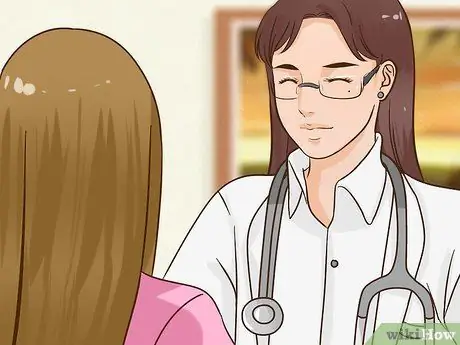
Step 6. Check with your doctor regularly
Diseases and infections can be detected as early as possible so they are easier to treat if you regularly check with your doctor. For that, come to the clinic of a general practitioner, dentist, obstetrician, cardiologist, or other doctor to maintain health. See a doctor immediately if you feel unwell or suspect that you have an infection and continue with regular check-ups.






